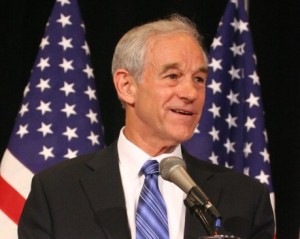The Moral Liberal – October 24, 2011
TeenScreen Expandiing Despite Concerns
More and more public schools are using TeenScreen, a controversial mental health screening diagnostic, despite public protests, myriad problems, and known conflicts of interest. According to TeenScreen deputy director Leslie McGuire, the program has expanded from 30 sites in 2003 to 600 sites in 46 states today. Requests for their screening questionnaires have almost tripled to 426,000 in 2010, according to the group.
One school district in Wisconsin has subjected its students to this dubious diagnostic for almost a decade. “Since 2002, we have been implementing TeenScreen mental health checkups throughout our system of 7,300 students,” wrote Fond du Lac High School principal Jon Wiltzius and district superintendent James Sebert in a letter urging fellow administrators to adopt the program.
A report authored by TeenScreen officials and published by the Journal of the American Academy of Child and Adolescent Psychiatry in August said that nearly 20% of participating students attending Fond du Lac district high schools between 2005 and 2009 were deemed “at risk” for mental illness or suicide. The computerized 52-item survey screens for social phobia, anxiety, depression and other mental health issues using questions like these:
- Have you often felt very nervous or uncomfortable when you have been with a group of children or young people, like in the lunchroom at school, or at a party?
- In the last year, has there been any situation when you had less energy than usual?
But what normal high-school student hasn’t experienced self-doubt or felt very nervous or been tired? Even TeenScreen creator David Shaffer of Columbia University conceded in a 2004 article that the test (also known as the Columbia SuicideScreen) “would result in 84 nonsuicidal teens being referred for further evaluation for every 16 youths correctly identified.” Still, maintained Shaffer, “many of these so-called false-positive cases may be experiencing painful depressive symptoms . . . and are likely to benefit from treatment.”
No Child Left Unmedicated?

Congressman Ron Paul has re-introduced The Parental Consent Act , A bill which prohibits federal funds from being used to establish or implement any universal or mandatory mental health, psychiatric, or socioemotional screening program.
Allen Jones, former investigator with the Pennsylvania Office of the Inspector General, charges that the translation of normal human emotions into symptoms of mental illness is driven not by genuine concern for kids, but by a profit motive. “TeenScreen was developed and promoted by persons with deep financial ties to makers of psychiatric drugs,” said Jones. Indeed, a stated priority of the TeenScreen program is to “connect” kids with mental health treatment – which all-too-often means prescribing psychotropic drugs. (Referrals to medical doctors who might diagnose physical problems are not part of the TeenScreen protocol.)
Jones’ claim is backed up by at least two watchdog groups who have noted TeenScreen leadership’s ties to pharmaceutical firms. David Shaffer has served as a paid consultant for Pfizer, GlaxoSmithKline, and numerous other manufacturers of psychiatric drugs. Laurie Flynn, TeenScreen Director, previously served as executive director of the National Alliance on Mental Illness, which receives about three quarters of its funding from drug companies, according to a 2009 investigation by The New York Times.
TeenScreen advisory board member Michael Hogan served in leadership roles for at least two entities that are heavily funded by drug company “educational grants.” As director of the Ohio Department of Mental Health, Hogan is largely responsible for making Ohio one of the first states to roll out and fund TeenScreen in 2002. Under Hogan’s watch, nearly 40,000 kids on Medicaid were taking drugs for anxiety, depression, delusions, hyperactivity and violent behavior by July of 2004. The Ohio Department of Job and Family Services spent $65.5 million for kids’ mental health drugs that year alone, according the Columbus Dispatch.
Ohio is not alone in this record level of spending to medicate children. Nationally, the Medco 2010 Drug Trend Report found that the number of children taking antipsychotic drugs has doubled over the past nine years.
But the unnecessary expense isn’t the worst aspect of this trend. Antipsychotics can cause severe physiological and mental side effects, including apathy, obesity, diabetes and involuntary tremors. Robert Whitaker, author of Anatomy of an Epidemic, suggests that over-prescribed stimulants and antidepressants have contributed to the 40-fold increase in the number of children diagnosed as bipolar since 1995. Whitaker explains that stimulants can trigger periods of mania followed by sluggishness in children. These kids may then be re-diagnosed as bipolar, a disorder which only a few decades ago was considered to be an exclusively adult malady.
Many Problems, Few Benefits
There are still more problems with universal mental health screening. One of the major selling points for TeenScreen advocates is suicide prevention, but the U.S. Preventive Services Task Force found “no evidence” that screening for suicide risk reduces suicide attempts or mortality.
Furthermore, even authors of the Diagnostic and Statistics Manual (DSM), the bible of psychiatric diagnosis upon which TeenScreen questions are based, admit that the DSM-IV diagnostic criteria for mental illness are vague and without “clear empirical data supporting . . . the diagnosis.”
Although the TeenScreen website explicitly states that questionnaire results are not linked to students’ academic records, a 2003 Illinois law illustrates that this is not necessarily true. The Illinois Children’s Mental Health Act calls for a statewide data-reporting system to track the results of periodic social-emotional development screens in kindergarten, 4th and 9th grades. It also calls for report cards on children’s social-emotional development. These records may be available to government officials and special interest groups without parental or child consent.
Underlying all of these problems is the fact that mental health screening plans override parents’ rights to control the care of their children. Despite assurances that both parents and children must provide consent before TeenScreen or similar surveys are administered, schools and TeenScreen officials are not above using underhanded means. Kids have been bribed with movie passes or pizza parties if they participate. Schools sometimes require only “passive” consent from parents, meaning that if parents don’t sign a form explicitly opting their child out of the program, their consent is assumed.
Parents have also been coerced into putting their kids on unsafe psychiatric medications. Patricia Weathers, the Carrolls, Johnstons, and Salazars have all been charged or threatened with child abuse charges for resisting efforts to drug their children. Just recently, Detroit officials seized a mentally handicapped 13-year-old from mother Maryanne Godboldo’s home because Godboldo stopped injecting her child with Risperdal, a psychotic drug notorious for severe side effects including suicidal thoughts and an inability to control motor functions.
Congressman Ron Paul has noted the potential for universal or mandatory mental health screenings to be used for politically motivated purposes. One federally-funded violence prevention program already lists “intolerance” as a mental problem that may lead a child to commit violent acts at school, and there are efforts underway to add a diagnosis of “extreme intolerance” to the Diagnostic and Statistical Manual. “Because ‘intolerance’ is often a code word for believing in traditional values, children who share their parents’ values could be labeled as having mental problems and a risk of causing violence,” said Paul as he reintroduced his Parental Consent Act before the House of Representatives in August.
First introduced in 2005, Paul’s bill would forbid the use of federal funds to establish or implement any universal or mandatory mental health screening program. The bill also states that no federal education funds may be paid to any local education agency that uses the refusal of a parent or guardian to consent to mental health screening as a basis of child abuse or neglect.
More than 30,000 people have signed an online petition to stop using TeenScreen in schools. Parents and other concerned citizens should also tell their Members of Congress to support Paul’s bill. They should oppose mental health screening at the school board and state legislature levels, and ask state representatives to pass Pupil Rights legislation to keep students from being subjected to nosy psychological or psychiatric questions without prior, informed, written parental consent. (Wall Street Journal, 8-30-11; blogs.ScientificAmerican. com, 9-2-11; RepublicMagazine.com, 8-31-11; cchrint.org, 8-26-09)


